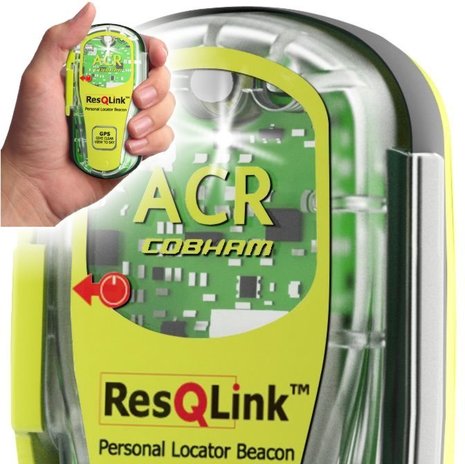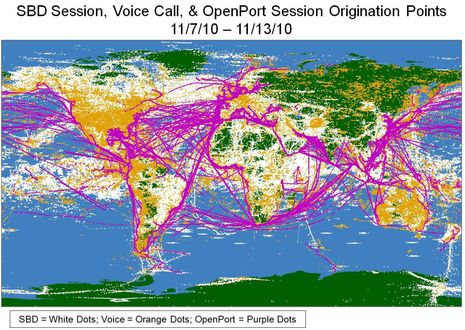ACR: new PLB & Iridium partnership(s)

I think ACR has really advanced PLB technology in recent years, what with its AquaLink View and 406Link testing/messaging service. But up until now it didn't have a competitive response to McMurdo's extra small and extra inexpensive Fast Find 210. Well, hello ResQLink, which now lays claim to "world's smallest PLB" along with a few features that may demand a response from McMurdo. ResQLink has an antenna that the user can repack, for instance, which is one reason why it can do a full through-satellite test (with GPS) using the 406Link service. Doug Ritter put up an early and thorough ResQLink/Fast Find comparison here -- and note that the FCC disclaimer still applies, probably until late February -- but do come back to hear about what ACR is up to with Iridium...
Today Iridium announced five new partners and at the top of the list you'll see ACR, which is purportedly "extending its range of renowned emergency distress alerting beacons to include true global two-way text messaging and tracking capabilities." While ACR tells me that the "innovative TXT-100 device" mentioned in the release is many months away (and that's only a working name by the way), just knowing that a marine electronics player of its stature is working with Iridium's new SBD 9602 messaging abilities reinforces my sense of what a big deal it may be for boaters. And look, DeLorme is a new Iridium partner too, which certainly suggests that there will be a two-way, and global, version of its Spot PN-60w system. Plus we've already had a preview of Briartek's powerful 9602-based Cerebrus system, and who knows what Iridium's other 149 partners are working on. Or how the other commercial satellite companies will respond to a deluge of messaging, tracking, and distress gadgets.And what about the non-commercial COSPAS SARSAT system that's behind the amazing abilities of PLB's like ResQLink? While ACR's initial Iridium product isn't about distress per se, my source there definitely sees the value of two-way messaging during a bad situation at sea, as I'm sure the SAR professionals do. He also said that there several possible advancements coming to SARSAT technology, like AIS EPIRBS. As discussed in that Cerebrus entry, it seems to me that the pros and cons of commercial versus non-commercial safety technologies may soon be pretty confusing...but then again that might be because they're both so good.


 Share
Share
Two-way text to an emergency beacon? I like the sound of that. When things get really bad really quickly, being able to get messages to and from the boat in distress could be very helpful to the SAR teams. They would have a way to know, for example, whether they need to bring extra supplies to deal with a medical condition, or whether damage or injuries might preclude the use of some extraction techniques. It'd also be great for morale and safety aboard the stricken vessel, knowing what SAR assets are on the way and what to do when they arrive would.
The clincher, as always, will be price. If this adds a significant recurring fee, ships might not mind but cruising boats might choose to do without the extra features. If they can roll it all into a one-time purchase price that's not a prohibitive jump up from GPS EPIRBs, it'll likely become the de facto standard across most long-range fleets.